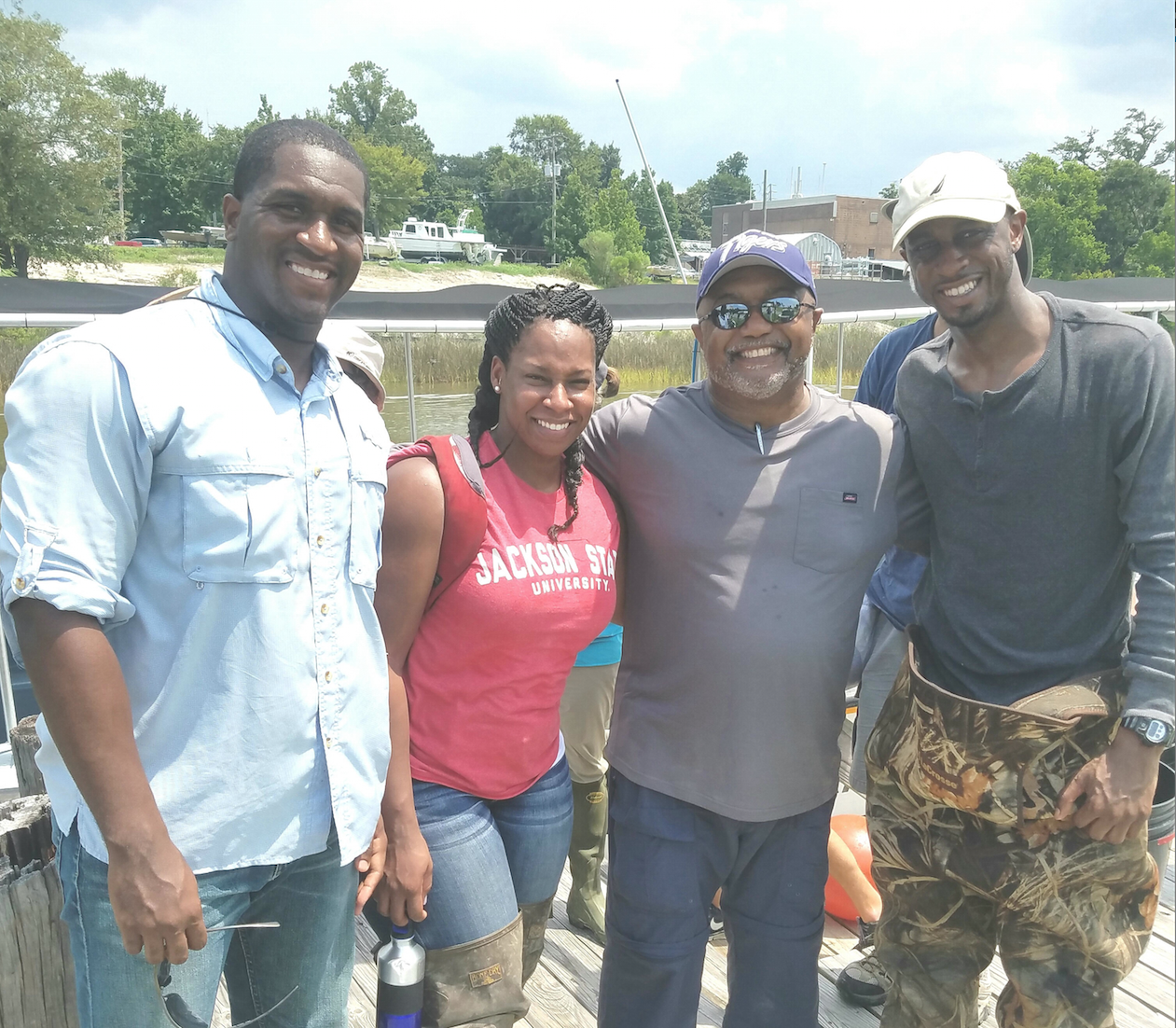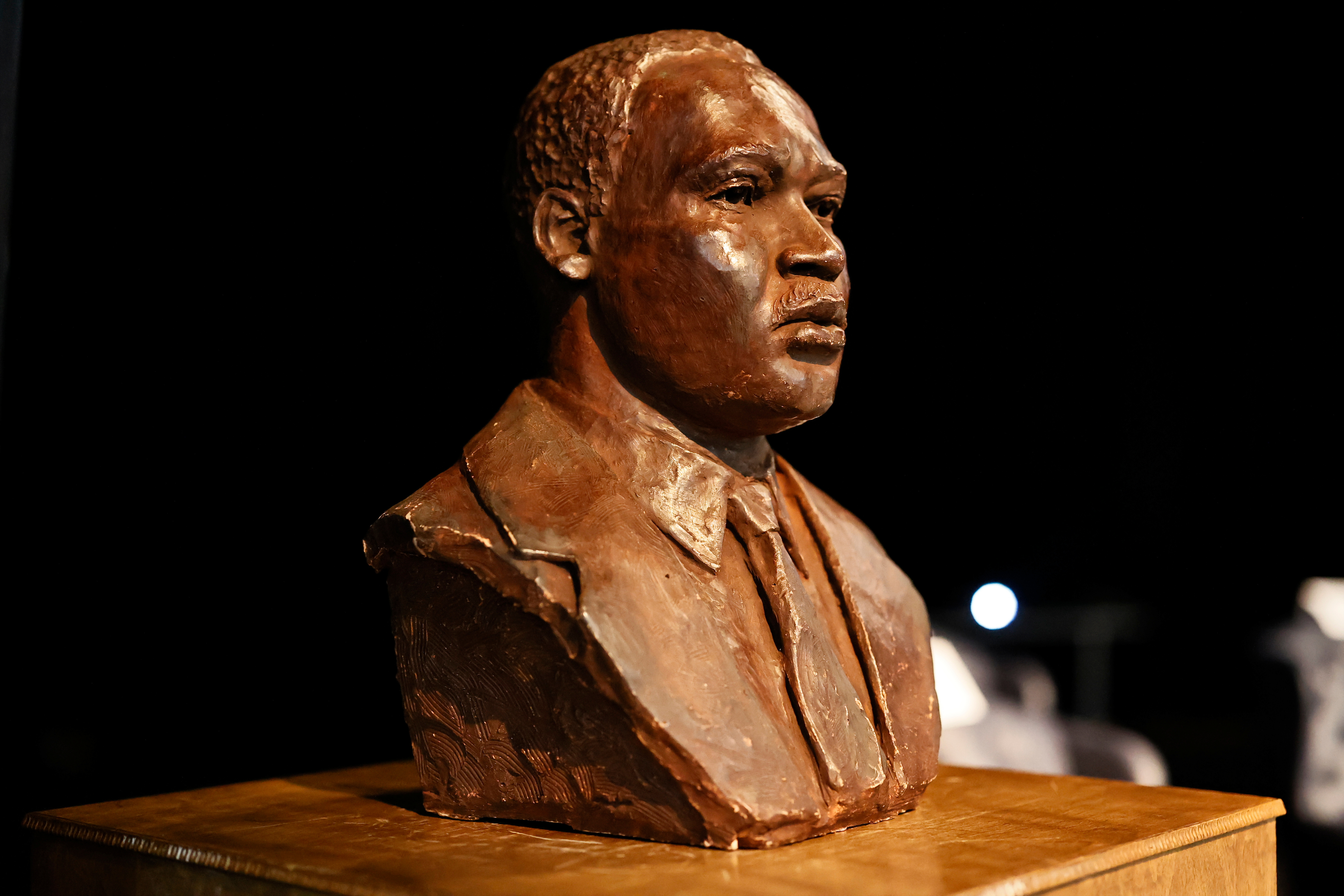
This summer, Jackson State University students Eric Gulledge, Taimei Harris and Willis Lyons attended the annual National Oceanic and Atmospheric Administration (NOAA) and Environmental Cooperative Science Center (ECSC) Core Wide Competency Course at the Gulf Coast Research Laboratory in Ocean Springs, Miss.
Gulledge and Harris are currently in JSU’s environmental science doctoral program while Lyons is studying to receive his master’s degree in the same field.
During the course, the students had access to endless networking opportunities, hands-on learning experiences and various inter-disciplinary lessons – particularly within science and law (environmental justice).
“The trip was great … I wish more students could experience the rigor yet the enjoyment of conducting research in a natural environment,” Lyons said.
He hopes the visit will also initiate efforts to revamp the university’s marine biology program and identify the heightened demand for society’s environmental literacy.
“Individuals need to understand the necessity for recycling programs and the preservation and conservation of environmental resources,” Lyons added.
According to Dr. Timothy Turner, chair of the JSU biology department, the ECSC program is an established producer of achievements in science and technology, cultivator of innovators and excels in reaching NOAA-related directorates.
Additionally, Turner explains that one mission of NOAA and the ECSC is to train a new generation of environmental scientists, particularly from under-represented minority groups.
To fund programs of this magnitude, Turner leads administrative and grant writing initiatives. His work seeks to increase awareness of the opportunities within coastal science management and marine biology.
“I felt like a fish out of water venturing into marine biology and coastal sciences because it was not my specialty, but I recognized its importance to our daily lives and for the students at Jackson State,” Turner said.
“Therefore, I have made it a priority for the department of biology to assert its utmost energy and efforts to strengthen and maintain our current partnerships with NOAA and ECSC,” he added.
Recently, NOAA donated a boat to Jackson State University as a symbol of its commitment to education and acknowledgment of its long-standing partnership with the institution. The boat will be housed on the grounds of Mississippi’s Grand Bay National Research Reserve, a natural and federally protected land.
Turner states that he is proud that the HBCU is involved in NOAA whose aim is to develop natural and social science tools that assess ecosystem health.
“We understand that continual research and modern, accessible resources are crucial to further understand the impacts on the air, water, soil, wildlife, and much more,” he said.






